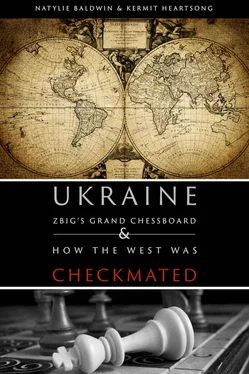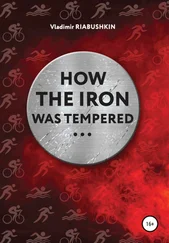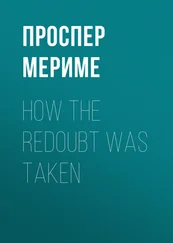Kermit Heartsong - Ukraine - ZBIG's Grand Chess Board & How The West Was Checkmated
Здесь есть возможность читать онлайн «Kermit Heartsong - Ukraine - ZBIG's Grand Chess Board & How The West Was Checkmated» весь текст электронной книги совершенно бесплатно (целиком полную версию без сокращений). В некоторых случаях можно слушать аудио, скачать через торрент в формате fb2 и присутствует краткое содержание. Год выпуска: 2015, Жанр: Политика, на английском языке. Описание произведения, (предисловие) а так же отзывы посетителей доступны на портале библиотеки ЛибКат.
- Название:Ukraine: ZBIG's Grand Chess Board & How The West Was Checkmated
- Автор:
- Жанр:
- Год:2015
- ISBN:нет данных
- Рейтинг книги:4 / 5. Голосов: 1
-
Избранное:Добавить в избранное
- Отзывы:
-
Ваша оценка:
- 80
- 1
- 2
- 3
- 4
- 5
Ukraine: ZBIG's Grand Chess Board & How The West Was Checkmated: краткое содержание, описание и аннотация
Предлагаем к чтению аннотацию, описание, краткое содержание или предисловие (зависит от того, что написал сам автор книги «Ukraine: ZBIG's Grand Chess Board & How The West Was Checkmated»). Если вы не нашли необходимую информацию о книге — напишите в комментариях, мы постараемся отыскать её.
Ukraine: ZBIG's Grand Chess Board & How The West Was Checkmated — читать онлайн бесплатно полную книгу (весь текст) целиком
Ниже представлен текст книги, разбитый по страницам. Система сохранения места последней прочитанной страницы, позволяет с удобством читать онлайн бесплатно книгу «Ukraine: ZBIG's Grand Chess Board & How The West Was Checkmated», без необходимости каждый раз заново искать на чём Вы остановились. Поставьте закладку, и сможете в любой момент перейти на страницу, на которой закончили чтение.
Интервал:
Закладка:
In this case, Kagan's distortions are particularly egregious and willful because he knows full well the role his wife, Victoria Nuland, played in fomenting the current chaos in Ukraine.
Nuland, a former chief foreign policy advisor to Dick Cheney in the Bush II administration and later ambassador to NATO, served as a spokesperson for the Obama State Department prior to her current gig as Assistant Secretary for European and Eurasian Affairs. She is one of the Neocons that Obama inexplicably kept around — part of the new tactic that many Neocons had embarked on by 2008, which was to embed themselves within the broader Washington establishment, according to former Neocon Jacob Heilbrunn, now an editor at the Realist publication The National Interest :
Whether it's the Foundation for the Defense of Democracies or the National Endowment for Democracy, the Weekly Standard or the New York Sun, the neoconservatives are battle-hardened fighters who have created a permanent base for themselves. They will not disappear. (Lobe 2008)
Heilbrunn provides unique insight into the Neocon mindset by describing what amounts to an internalized case of post-traumatic stress disorder in connection with the Jewish holocaust that makes for an eternal vigilance about the failures of German and European liberal democrats to standing up to Hitler and the Nazis as well as to Communism. “Neoconservatives see Munichs everywhere and anywhere. [They] have shaped a romantic narrative for themselves in which they are the new Churchills staring down the forces of evil” (Lobe 2008).
This is the kind of mindset that can find within a leader like Russian President Vladimir Putin, who is a pragmatic mixed bag of political and economic policies and cannot be bent to the US's will, a new Hitler.
After having the wheels greased via funding of numerous political and media organizations in Ukraine by the National Endowment for Democracy (NED) led by its Neocon president Carl Gershman, Nuland actively encouraged the protests at Maidan Square along with Neocon Senator John McCain who was photographed with leaders of Svoboda in front of their neo-Nazi banner (Taylor 2013).
Responsibility to Protect
(aka R2P or Liberal Intervention)
War is essentially an evil thing. Its consequences are not confined to the belligerent states alone, but affect the whole world. To initiate a war of aggression, therefore, is not only an international crime, it is the supreme international crime differing only from other war crimes in that it contains within itself the accumulated evil of the whole.
— Judgment of the Nuremberg Tribunal, 1945–1946
John Horgan in his book, The End of War scientifically analyzes war throughout human history via anthropological, historical, psychological, and sociological studies of warfare and atrocities. One of his conclusions is that the old cliché about justice being a prerequisite for peace is wrong. Actually, the opposite is true — peace is a prerequisite for justice and for the pursuit of other noble goals. By the very nature of war and the conditions it produces, justice, democracy and physical well-being cannot flourish (Horgan 2012; Jacobson 2012).
Those who believe that war can be the means for bringing peace, democracy, and human rights to an area in conflict or breakdown are required to delude themselves with notions of “short, clean, surgical” wars, which have no basis in reality. To believe such is to be actually or willfully ignorant of what modern war is, which includes soldiers who have typically undergone training that has been refined over the past 70 years to produce higher kill rates through operant conditioning, the use of weapons and munitions that are guaranteed to be non-discriminatory due to their awesome power of destruction or continuing danger after the cessation of hostilities, and theaters of operation that do not have clearly delineated lines separating the battlefield from the non-battlefield (Grossman 1997; Zinn 2002).
“Humanitarian interventions” based on the theoretical promotion of human rights and democracy is a modern variation of the crusader mindset. It is a mindset that has been used to justify colonialism in the past, such as Christian missionary work, “civilizing” the pagans and savages, and the “white man’s burden.” It has also proved a very successful way to get traditionally anti-war and anti-imperialist segments of the left to support such wars even though there is little reason to believe that “great powers” like the US are suddenly pursuing something different than they have in the past when they choose to intervene militarily or otherwise embed themselves by force in another country: economic gain and geopolitical advantage (Bricmont 2006).
As alluded to earlier, one need only look at the US’s documented record of military interventions and covert operations in other countries since the end of WWII to realize that a country’s human rights record or functional democratic institutions are not the criteria by which the US determines what leaders or governments it will support, install, prop up or ally with. A more consistently recognizable pattern involves receptivity to US corporations and geostrategic advantage against perceived competitors on the world stage (Blum 2000).
Diana Johnstone, author of Fool’s Crusade: Yugoslavia, NATO and Western Delusions and a critic of R2P, points out that genocide and ethnic cleansing actually tend to occur within the context of or as the result of wars. The Jewish Holocaust and the Khmer Rouge genocide are obvious examples. The Rwandan genocide happened during a civil war that took place from 1990–1994 (Johnstone 2013).
Another example, although less clear to the American public due to the dominant portrayal offered by the US government and establishment media, is the Serbian genocide of the Milosevic government against Kosovar Albanians immediately following the initiation of the US/NATO military intervention — a humanitarian catastrophe that NATO expected as a result of its actions, according to international law expert Francis Boyle, who represented the Republic of Bosnia and Herzegovina in proceedings at the International Court of Justice (Boyle 2013). Indeed, a July 2014 report by the chief prosecutor of the Special Investigative Task Force set up by the EU to conduct a criminal investigation into allegations of war crimes by the US/NATO-installed Kosovo Liberation Army (KLA) found that a criminal indictment is justified against senior officials of the KLA. This finding was based on sanctioned actions that constitute ethnic cleansing and crimes against humanity against large portions of the Serb and Roma populations, as well as violent persecution of political opponents within the community of Kosovo Albanians (Williamson 2014).
The United Nations (UN) was established to protect the concept of national sovereignty with the understanding that in order to save future generations from war, it was necessary to highlight the sanctity of national borders from violation by more powerful and belligerent nations. Johnstone argues that advocates of the R2P doctrine seek to undermine this legal concept of national sovereignty:
In fact, Hitler initiated World War II precisely in violation of the national sovereignty of Czechoslovakia and Poland partly in order, he claimed, to stop human rights violations that those governments allegedly perpetrated against ethnic Germans who lived there. It was to invalidate this pretext, and “save succeeding generations from the scourge of war”, that the United Nations was founded on the basis of respect for national sovereignty.
In practice this [R2P] can give the dominant powers carte blanche to intervene militarily in weaker countries in order to support whatever armed rebellions they favor. Once this doctrine seems to be accepted, it can even serve as an incitement to opposition groups to provoke government repression in order to call for “protection.” (Johnstone 2013)
Читать дальшеИнтервал:
Закладка:
Похожие книги на «Ukraine: ZBIG's Grand Chess Board & How The West Was Checkmated»
Представляем Вашему вниманию похожие книги на «Ukraine: ZBIG's Grand Chess Board & How The West Was Checkmated» списком для выбора. Мы отобрали схожую по названию и смыслу литературу в надежде предоставить читателям больше вариантов отыскать новые, интересные, ещё непрочитанные произведения.
Обсуждение, отзывы о книге «Ukraine: ZBIG's Grand Chess Board & How The West Was Checkmated» и просто собственные мнения читателей. Оставьте ваши комментарии, напишите, что Вы думаете о произведении, его смысле или главных героях. Укажите что конкретно понравилось, а что нет, и почему Вы так считаете.











